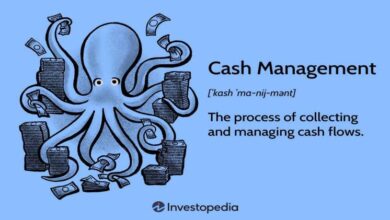7 Reasons Why Investing in an IPO is a Good Idea

If you’re considering investing in an initial public offering (IPO), you may have questions about how it works and what kinds of returns you can expect from this type of investment strategy.
To help you understand how IPOs work and the potential pros and cons of investing in an IPO, we’ve listed seven reasons why it’s a good idea to invest in IPO.
Investment In An IPO Is Less Risky
When a company goes public, it’s because it’s doing well and has been for some time. That means there’s less risk that the company will go bankrupt or otherwise fail. The stability of a more established company also makes investing in its stock less risky than betting on startups that may not have much of a track record.
Initial Public Offerings Are Highly Liquid
According to experts at SoFi, “When you buy shares in an IPO, you buy them on the open market.” That means you can sell them as soon as the market opens. And because IPOs are so popular, there’s always a high demand for them. As a result, you’ll get more money when you sell your IPO stock than if you sold it after it had already been listed on the market for some time.
Returns From IPOs Outpace The Market
On average, IPOs deliver strong returns in the first year following their debut on the stock market. IPOs outperformed the overall market by nearly 20% in 2019, according to Renaissance Capital.
Cost Of Capital Is Lower In An IPO
When a company goes public, it gains access to new sources of capital, which can help it lower its cost of capital. That’s because the IPO provides access to the debt and equity markets and the ability to raise money from venture capitalists and angel investors.
Greater Investor Participation Means Higher Valuations
When a company goes public, it’s because management believes their company will be valued more highly by the market than it would be as a private company. When you sell shares of your company to investors, you’re also giving them a piece of ownership of your business.
Entry Prices Are Usually Lowest In Early Stages Of A Company’s Life Cycle
When a company first goes public, its stock price is usually low. This presents an opportunity for investors to buy shares at a discount. As the business grows and attracts more investor interest, the share price will rise accordingly. These entry prices are usually lowest in the early stages of a company’s life cycle.
IPOs Provide Great Opportunity To Time Entry Right Before Exit Events
When LinkedIn went public in 2011, early investors had the opportunity to cash out right before the company’s stock price tanked. They would have lost out on significant profits if they had waited just a few months.
Your entry and exit timing are two of your most important decisions as an investor. To maximize profits, you need to be able to get into stocks before they spike and out before they decline. IPOs present investors with just such an opportunity.
IPOs offer investors the chance to get in on the ground floor of a company with the potential for high returns. They also provide liquidity, which can be helpful if you need to raise cash quickly.





